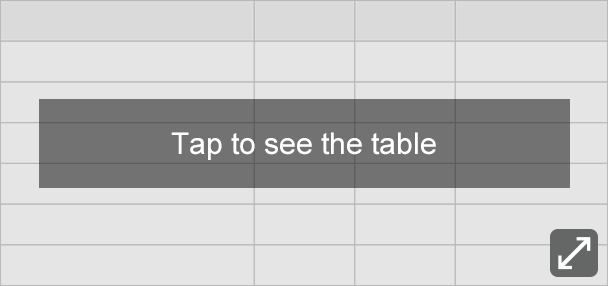- Home
- Information
- Ricoh Concludes a Positive Impact Finance Loan Agreement with Sumitomo Mitsui Trust Bank for Two Consecutive Years
Information
Ricoh Concludes a Positive Impact Finance Loan Agreement with Sumitomo Mitsui Trust Bank for Two Consecutive Years
Continuous high evaluation of the Ricoh Group's proactive ESG initiatives
- June 19, 2023
TOKYO, June 19, 2023 – Ricoh and Sumitomo Mitsui Trust Bank, Limited (“Sumitomo Mitsui Trust Bank”) have concluded a “Positive Impact Finance (with unspecified use of funds)” loan agreement that is in line with the Principles for Positive Impact Finance*1 released by the United Nations Environment Programme Finance Initiative (“UNEP FI”)*2. This is the second year to conclude this agreement following the previous fiscal year.
Positive Impact Finance (“PIF”) is intended to support corporations' activities that comprehensively analyze and evaluate their impacts (both positive and negative) related to the environment, society, and the economy. The most notable feature of PIF is that the degree of contribution from corporate activities, products, and services in achieving Sustainable Development Goals is used as an evaluation indicator and monitored based on publicly disclosed information and supports corporations' activities to achieve these goals through engagement.
Positioning ESG initiatives as “essential initiatives for generating future finances,” Ricoh has identified seven material issues in two areas, “Resolving social issues through business” and “Robust management infrastructure,” to support materiality. There are 16 ESG targets linked to the identified material issues. In this agreement, the progress of newly revised ESG targets under the 21st Mid-Term Management Strategy, which started in the fiscal year 2023, are adopted as one of the evaluation criteria.
Evaluation Criteria for Positive Impact Assessment
| Theme | Content | Goals and Indicators | SDGs |
|---|---|---|---|
| Contribution to Zero-carbon Society | Upholding the Science Based Target (SBT) of 1.5°C, we will work to reduce GHG emissions substantially and supply products and solutions that contribute to the decarbonization of society as a whole. |
(a) Developing thorough energy conservation and CO2 reduction activities
Goals
GHG emissions (Scope 1, 2, and 3) (b) Active utilization of renewable energy GoalsSwitch to renewable energy sources for 40% of electricity needed for business by FY2025, 50% by 2030, and 100% by 2050. Indicators (KPI)Renewable energy usage ratio |
|
| Contribution to Circular Economy | We will further enhance our 3Rs (reduce, reuse and recycle) measures and reduce the use and foster the substitution of plastic materials and provide on-demand printing service, thereby helping customers make efficient use of resources. |
Goals
|
|
| Contribution to Community and Society | We will expand value proposition area by contributing to maintain, develop, and streamline regional and societal systems through technology and customer base. |
Goals
Contribute to the enhancement of social infrastructure of 15-20 million people by FY2025 and 30 million people by 2030. Indicators (KPI)Number of people to whom we have contributed by improving social infrastructure*
|
|
| Strengthening Sustainability throughout the Global Supply Chain | We will strengthen collaboration with our business partners and build a Win-Win-Win relationship between our company, business partners, and society. |
Goals
|
|
| Realization of decent work and respect for diversity | We will respect the diversity of employees, upholding the empowerment of self-motivated employees in our management policy and strive to create workplaces where employees can work with vigor. |
Goals
|
|
To ensure the transparency and objectivity of the evaluation, Sumitomo Mitsui Trust Bank obtained a third-party opinion*3 from Japan Credit Rating Agency, Ltd.
- *1
- The Principles for Positive Impact Finance
The Principles for Positive Impact Finance was developed by UNEP FI in January 2017 as a financial framework for achieving the SDGs. Companies disclose the level of contributions to achieving SDGs through KPIs. Banks then provide funding by evaluating the positive impact observed from these KPIs that is intended to guide the borrowers to increase positive impact and reduce negative impact.
The lending bank, as a responsible financial institution, will check if the impact is continuing or not by monitoring the indicators.
- *2
- The United Nations Environment Programme Finance Initiative (UNEP FI)
The United Nations Environment Programme (UNEP) is an executive body for implementing the “Human Environment Declaration” and the “International Environmental Action Programme” established in 1972 as a subsidiary body to the United Nations system. UNEP FI represents a broad as well as a close partnership between UNEP and more than 200 global financial institutions. Since its establishment in 1992, UNEP FI has been working in concert with financial institutions and policy/regulatory authorities to transform itself into a financial system that integrates economic development and ESG considerations.
- *3
- For information on Japan Credit Rating Agency, Ltd., please visit:
Relevant Information
| About Ricoh |
Ricoh is a leading provider of integrated digital services and print and imaging solutions designed to support digital transformation of workplaces and optimize business performance.
Headquartered in Tokyo, Ricoh's global operation reaches customers in approximately 200 countries and regions, supported by cultivated knowledge, technologies, and organizational capabilities nurtured over its 85-year history. In the financial year ended March 2023, Ricoh Group had worldwide sales of 2,134 billion yen (approx. 16.0 billion USD).
It is Ricoh's mission and vision to empower individuals to find Fulfillment through Work by understanding and transforming how people work so we can unleash their potential and creativity to realize a sustainable future.
For further information, please visit www.ricoh.com
###
© 2023 RICOH COMPANY, LTD. All rights reserved. All referenced product names are the trademarks of their respective companies.







